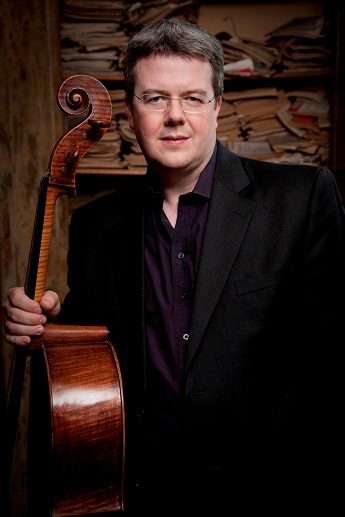We don’t often hear Semyon Bychkov in the core Austro-German repertoire. That’s a great shame, because the qualities that make his Russian music performances so special are just as valuable here: the dynamism and immediacy, the supple but propulsive phrasing, and, above all, the firm, guiding hand, exerting control without imposing restraint.
All those qualities were as evident in the Detlev Glanert opener as they were in the Haydn and Brahms. Glanert is one of the many German composers today engaged in hommage works commemorating 19th century forebears, although Beethoven and Mahler are more common subjects than Brahms. Cleverness can be taken for granted – subtle references, gentle updates – and Glanert’s homage to Brahms is as clever as any. But his Brahms-Fantasie has heart, too. The borrowed material is slight, a rising semitone from the opening of the First Symphony, a chord change from the Alto Rhapsody, but the development of the ideas is thoroughly Brahmsian. Harmonies become dense and tonal centres lose focus, such are the work’s modern trappings, but the long, lyrical lines are thoroughly Brahms, and seem no less so even when they wander into outright atonality. A fascinating piece, originally written for the BBC Scottish Symphony Orchestra and here receiving a well-deserved second performance.

Bychkov followed in the second half with a weighty but dynamic Brahms First. Tempos were often fast, with heavy accents and stark dynamics. Yet the music always retained a sense of lightness, a result of finely shaped phrasing and clear textures: Even in the loudest climaxes, every line shone through. Some excellent solos from the orchestra principals, notably guest leader Giovanni Guzzo, principal horn Nicholas Korth and oboe Richard Simpson, kept the standards equally high in the inner movement interludes. And in the finale, Bychkov brought everything together. Resigned and fatalistic readings of this movement have their place, but Bychkov went for something more imposing. There were shades of his Shostakovich in the way the textures gradually built up in the coda, the crescendos given all the more intensity by the focus he retained and his control over the textures and balance. A Russian take on Brahms? Perhaps, but the success of Bychkov’s reading came down to his ability to always work within the spirit of Brahms’ great score, and to communicate that spirit so effectively and so directly to his players.
- This performance was recorded for BBC Radio 3 and will be broadcast on Afternoon on 3 in the week beginning 25 January














Add comment